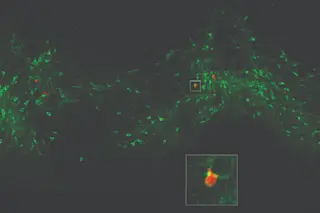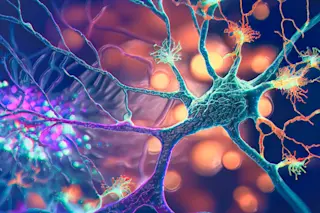While the connection between air pollution and lung disease could appear obvious, the link between breathing in toxins and suffering memory loss looks about as clear as a cloud of cigarette smoke.
Scientists at Scripps Research Institute first identified how contaminants in smog, pesticides, and other airborne chemical can affect the brain. Now they have identified a way to potentially reverse those effects, they report in the Proceedings of the National Academy of Sciences.
A chemical process in the brain called S-nitrosylation — which can be activated by inflammations as well as a variety of airborne toxins — blocks brain cells from making new connections, leading to brain cell death, then memory loss. Blocking S-nitrosylation in a specific brain protein partially reverses memory loss in mouse models for Alzheimer’s disease.
“We’ve revealed the molecular details of how pollutants can contribute to memory loss and neurodegenerative disease,” Stuart Lipton, a Scripps ...














